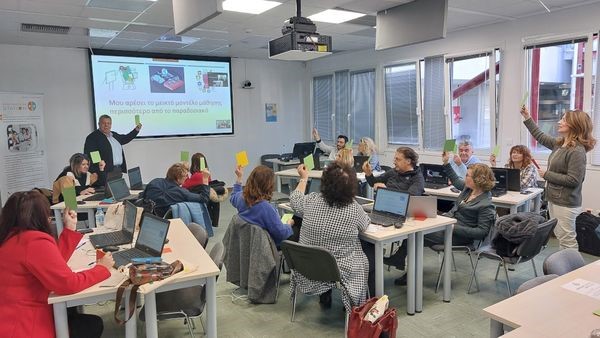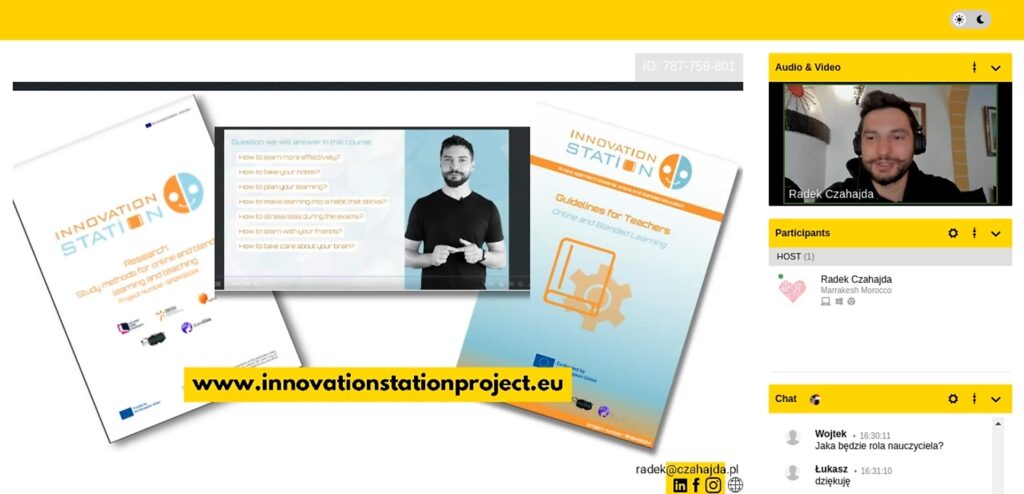89% of players of history-themed video games to varying degrees agree that video games can change one’s viewpoint on a historical event. Yet even though academics and gamers alike have been aware of the transformative potential of video games since the 1970s, education systems by and large have only now started recognizing it. Mostly due to the way it has grown within popular culture and the media in recent decades. In August 2022, we launched the Innovation Station initiative connecting students, educators and education practitioners in hopes of finding solutions to the challenges of online and blended learning, where this gap between the lived experience of students and young people, and the curricula they are to abide by was made even more evident.
In November of 2022, representatives of OBESSU member organisations and the OBESSU Board took part in a seminar in Brussels to share experiences and develop potential solutions and innovative methods for distance learning. The result of these consultations were guidelines for educators and policy recommendations necessary to foster a resilient learning environment. The very first assumption that has to be done away with is the self-serving conviction that we as civil society are discovering the wheel: A brief dive into the problem reveals the challenges linked with these methods of learning have long been pondered by experts. Our collective effort should now be aimed at addressing these long-standing challenges. Skillsets of game developers and historians are very divergent, and they often do not have meaningful structures for collaboration; moreover, the medium has a hard time dealing with sensitive historical topics and is incompatible with analytic history.
At the second History Education Forum of the Council of Europe, OBESSU underlined that although we see the promise of harvesting the potential of this medium to educate, video games must be first and foremost recognized for what they are, instead of how they can be used: And what they are is an art form. Art begets new worlds, rebelling against what is real. Art must be distant from reality, says Wilde, for Hecuba’s suƴering is a subject for tragedy precisely because it means nothing to us. So can art even grasp history; something, which we regard as so close? What is the relationship between the linear structure of history and the free format of video games stemming from the free will of the player? Can we even demand that video games fulfil a didactic function? After all, art has to lie to us, whereas education should mediate the truth… These are the questions that ought to be answered.
Video games as both an art form and an education tool can take us back to the material culture and urban architecture of the past or to the topologies of battlefields. They can also simulate systems, be they battle strategy or economic interactions. In some cases, they may even venture into simulating that which is the most elusive: Events. And in such cases, video games cannot be apolitical. A history devoid of the perspectives of the people who shape it and are shaped by it does not exist. Video games as an art form must affirm that nothing in history is exempt from criticism.
Author of the article: Petr Franc






